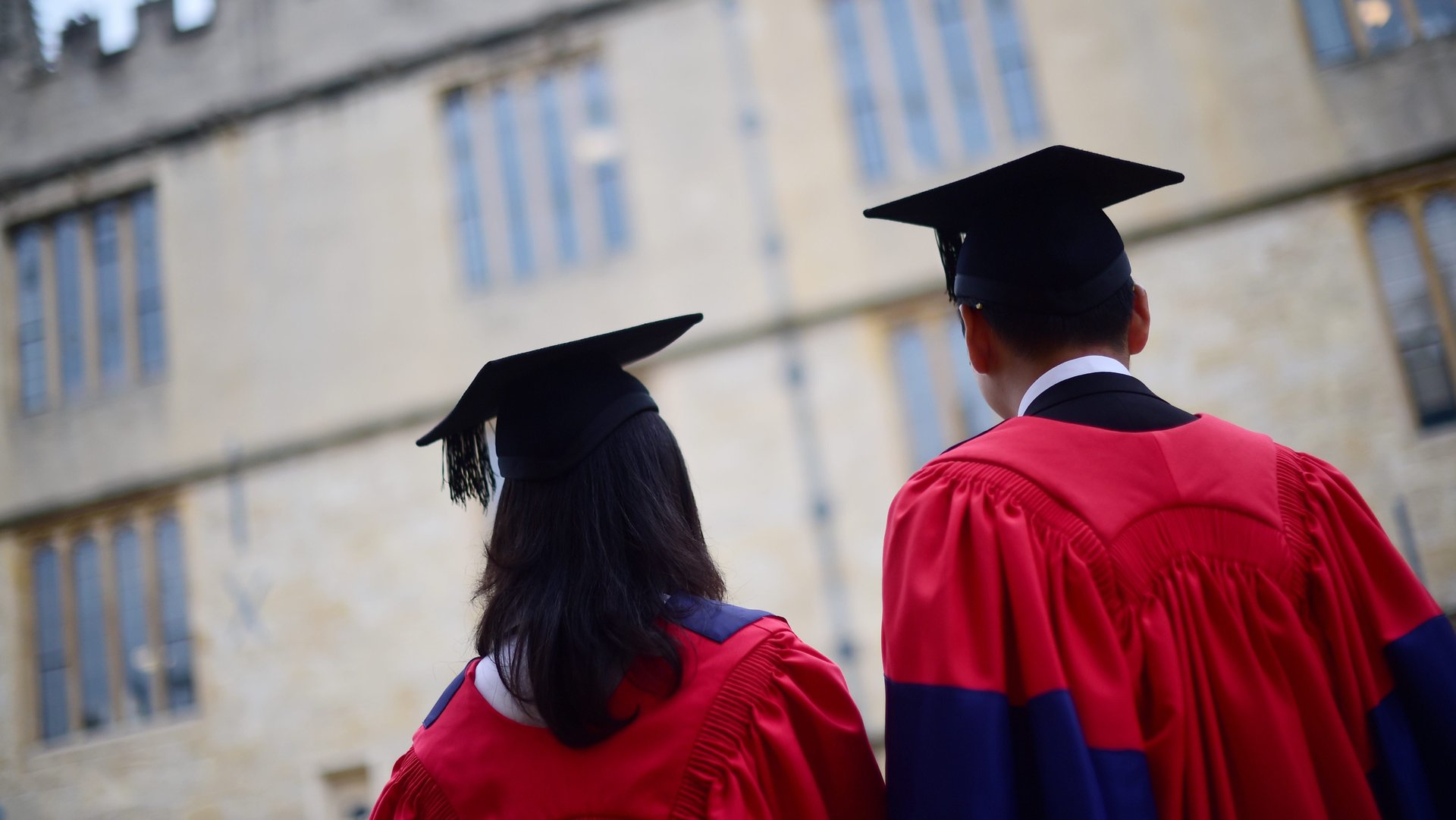The UK education system has provided a safe haven for corrupt Nigerian politicians
West Africa’s political elites have long been enamored with the UK’s leading education system. In the process, it has become a significant mechanism for illicit money flows, a report by the Carnegie Endowment for International Peace has found.


West Africa’s political elites have long been enamored with the UK’s leading education system. In the process, it has become a significant mechanism for illicit money flows, a report by the Carnegie Endowment for International Peace has found.
The recently published report by the institute’s Matthew Page was commissioned by the UK government, in partnership with its Foreign, Commonwealth and Development Office. It explores the decades-long affinity that Africa’s elites have had for the UK system, and highlights risks posed by the investment of funds into the UK education sector by “politically exposed persons”—so-called PEPs, which includes individuals convicted of corruption or whose assets have been seized by the UK.
Titled “West African Elites’ Spending on UK Schools and Universities: A Closer Look,” the report focuses primarily on Nigeria, and to a lesser degree Ghana. Its goal is to help understand the threat posed to the UK’s education sector and how best to address it.
While Europe’s business elite can comfortably afford a private boarding school in the UK, which costs upward of £35,000 ($48,000) per year, the same can’t be said of PEPs from Africa. The report found that “stagnating salaries, rapidly increasing tuition and living costs, and declining currency values” have made this practice a leap too far for some senior government officials.
“The gap between what west African PEPs pay for a UK education and what they can legitimately afford is a significant red flag,” Page writes. PEPs with “modest legitimate earnings” that stand in contrast to their “opaque asset profiles” should normally raise concerns, but they rarely do, the report finds. It includes some eye-popping examples of politicians who have paid upwards of £850,000 ($1.17 million) on their children’s school fees, in addition to owning several high-end properties, despite limited earnings.
Relatively lax anti-money laundering rules in the British education sector mean that checks on the financial backgrounds of applicants and their families have been insufficient, potentially making school administrators and admissions staff complicit in illegal flows of money.
The report estimates that only a minority of West African students in the UK—5% of university students and 30% of private boarding school students—have financial links to PEPs. Still, the influence of PEPs on the sector, while small, is significant, and estimated to be north of £30 million ($41 million) annually.
“Many institutions still appear reluctant to acknowledge outside criticism of the sector’s anticorruption shortcomings or learn from recent scandals,” Page writes. “Tackling this small but significant illicit financial flow should be a priority for UK policymakers.”
Ranked second in the world for education in 2020 by US News and World Report, a UK education helps to reinforce a “family’s preeminent social, political, and economic status from one generation to the next.”
For Ikemesit Effiong, head of research at Nigerian geopolitical intelligence group SBM Intelligence, the report “underscores the dissonance between the UK’s aggressive marketing effort targeting international students, including Nigerians, and its stated commitment to upholding human rights norms around the world.
“Both efforts have always operated in silos. This report might be the catalyst that jolts London to consider a more integrated approach towards engaging with Nigeria,” Effiong said.
The UK has become increasingly alert to how money laundering proceeds filter into its economy and is fusing stringent anti-corruption practices into its schooling systems, according to David Woodgate, the chief executive of the Independent Schools’ Bursars Association. The body advises members schools on anti-money laundering policies and processes.
The report is “a timely reminder of the need for vigilance in this area globally. ISBA has circulated the report to members to re-emphasize the need to comply with all relevant legislation and to maintain robust procedures, ask the right questions and undertake appropriate verification checks,” Woodgate says. “This approach will apply equally and consistently to all prospective pupils, irrespective of their country of origin.”
The report also cites examples of a number of government scholarship bodies which partner with UK universities and are “vulnerable to corruption,” including the Petroleum Technology Development Fund (PTDF), the Niger Delta Development Commission (NDDC),and the Tertiary Education Trust Fund.
PTDF, a partner of more than a dozen UK institutions, disbursed N29.6 billion ($84 million) in scholarships while spending N45.3 billion ($129 million) on its own staffing, administrative, training, and travel costs. The scholarship spending has had negligible impact on the Nigerian economy, according to an audit by a Nigerian transparency agency.
Effiong, who noted the crippling socioeconomic effects of these practices, believes the report will open the door for stricter checks on PEPs. But he adds, given the economic benefits, illicit or otherwise, “one thing that won’t be happening anytime soon is American, British and Canadian authorities firmly shutting their doors to Nigerian PEPs.”
Correction: An earlier version of this article misspelt the names of Ikemesit Effiong and SBM Intelligence.